As a practice area, private client is both protected from ‘AI’ and struggling with government automation of life-critical processes. Eduardo Reyes reports
At the table
(Left to right) Siobhan Rattigan-Smith the Society of Will Writers; Craig Matthews LEAP; Seb Shakh WillSuite; Amy Wallhead Culver Law; Jeanie Whelan Awdry Law; Guy Sterling Moore Kingston Smith; Paul Clark Spall Clark Solicitors; Eduardo Reyes Law Society Gazette; Clare Franklin Dexter Montague; Gurpreet Jani Lewis Denley; Esther Janalli-Brown Meaby & Co; Naomi Woods Weightmans; Sarah Giles BDB Pitmans; Louise Sargent Cripps; Zara Bracegirdle Ashtons Legal
'We have to remember what a privilege it is for people to actually instruct us to deal with what are hugely emotive topics'
Clare Franklin, Dexter Montague
It is towards the end of the latest Gazette roundtable, which brought together solicitors from private client departments, that Sarah Giles, senior associate at BDB Pitmans’ London office, observes: ‘Maybe we’re a bit more AI-proofed than other practice areas.’
The group had been asked to reflect on the future of private client work, and the aspects of the job that they expect to attract a talented pipeline of lawyers who are at the start of their careers. For Naomi Woods, partner at Weightmans, London, ‘it’s very intellectually challenging and you can be quite creative – not too creative – but you can be creative within a remit’.
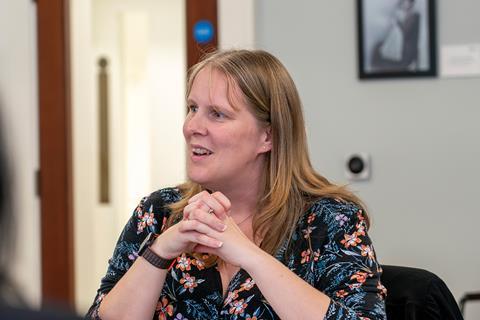
‘We have to remember what a privilege it is for people to actually instruct us to deal with what are hugely emotive topics,’ says Clare Franklin, a partner at Reading-based Dexter Montague. ‘We’re talking death, illness, dying and things like that. So, I think when people choose to come and speak to us about it, it’s a big privilege to be that part of people’s lives.’
For Paul Clark, managing director at Spall Clark Solicitors, based in Congleton, Cheshire: ‘You have a little window into the lives of people and sometimes it’s changed my own perspective on life as well.’
Artificial intelligence, then, has not done much to touch the rather special and interesting world of private client law. But for better, and sometimes worse, technology has been changing it – automation and digitisation now govern a range of processes.
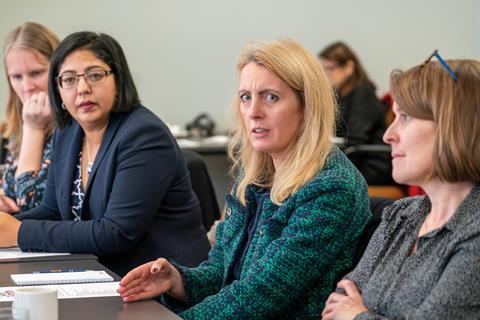
Entry point
The Covid-19 pandemic restrictions presented a challenge for private client lawyers. Famously, the morbid context led to an increase in people seeking to make wills and lasting power of attorney arrangements. Its ‘wet-ink’ processes saw solicitors and witnesses completing paperwork on the bonnets of parked cars, or skulking outside open French windows.
Lasting power of attorney is in the process of following grants of probate in becoming an exercise that can be completed online, using digital confirmations of identity of those involved. As the government’s response to a 2022 consultation put it: ‘The existing protections within the LPA system are losing their effectiveness as technology improves and society’s attitudes change. People are becoming more accustomed to obtaining government services efficiently online.’
For now, the gov.uk website provides the option of filling in an online form, similar in process to its self-assessment tax form, which will generate an LPA that can then be saved, printed and signed before being submitted to the Office of the Public Guardian. As such, it remains paper-based, but the online form provides an idea of how a fully online, digitised process will develop through the new framework.
Those present see sense in reform. ‘I think powers of attorney have come a long way,’ says Gurpreet Jani, partner at Horsham firm Lewis Denley. ‘There’s quite a lot which can be done to improve the process, to improve the guidance, the literature that’s out there for key players, donors, certificate providers in particular.’ With appropriate safeguards in place, she notes, ‘it’s quite an exciting step within the powers of attorney framework’. But she ‘reserves judgement’ for now, pending reassurances.
‘We’re still looking at how those safeguards are going to take shape,’ Siobhan Rattigan-Smith of the Society of Will Writers says, ‘but I think that’s one of the things I would have reservations about.’
At issue is the process that will accompany an online process that checks the identities of witnesses, consent and capacity of the subject, and the identity and interests of any attorney appointed. Who, in this context, Rattigan-Smith asks, is ‘playing fact-finder’?
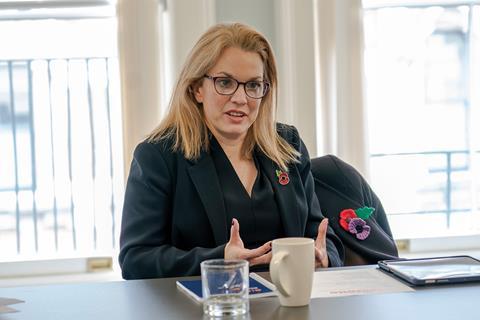
Concerns over the process already exist, notes Amy Wallhead, partner at Culver Law’s London office. ‘Over time… some of the safeguards have been taken away,’ she says. ‘I always likened it to going from signing for your receipt when you used your credit card to putting in a PIN. They’ve both got their issues and in some ways… I want a combination of the two to make it more secure.’
Some clients, she says, are looking at the gov.uk website and deciding they can handle the process themselves. ‘My boss acts as a court-appointed deputy,’ she notes, ‘so we see, unfortunately, the really, really bad side of it, and for us, it’s probably going to keep us in business – but not in a good way.’
The involvement of a solicitor would provide guarantees and reassurance within the new framework. But one attendee, who asked not to be named, notes: ‘There’s actively a policy to discourage lawyers’ involvement.’
Developing digitally
Legal services providers who handle lasting powers of attorney (LPA) are closely watching Office of the Public Guardian (OPG) plans to digitise the process, allowing for online applications. The Law Society is among the professional associations that are engaging with the OPG, and companies that provide services to the private client sector are doing the same.
One such is WillSuite, owned by LEAP, the sponsor of the roundtable. ‘We’ve been in discussions with OPG for just over a year,’ WillSuite’s Seb Shakh says. As a result, he adds, ‘we’ve been fortunate to see the early workings of the system that they’re building’. He predicts that there will be a ‘massive reduction in time that it will take to create [an LPA]’.

He says that changes that should help include ‘taking payment upfront online’ and the automation of ID checks. There will be a move to electronic payment-only, with payment by cheque being phased out.
What is in prospect is not ‘one form’, he says, but a series of processes to be completed. A common cause of delay currently – applications being rejected because people have signed forms in the wrong order, or used the wrong dates – can be avoided, because they won’t be allowed. A link to sign will only be sent out to people in the correct order as each has proved their identity and signed.
LEAP’s Craig Matthews adds: ‘The OPG has said that they will retain a paper based system until such time as they’ve got everything working for the online system.’
An automated process relies on consistency. Current experience gives cause for concern here. ‘It’s just so inconsistent,’ Giles says. LPAs with the same wording and checks can have different results. That is affirmed by Jeanie Whelan, associate at Wiltshire firm Awdry Law. ‘I had exactly that,’ she says. ‘Exactly the same… [yet] they accepted three and rejected one.’
This is more than an anecdotal problem. WillSuite’s Seb Shakh says the company’s service has dropdown menus matched to the OPG’s published processes and categories. In designing this, he adds, WillSuite has been ‘very cautious’, using terms and options listed in the OPG’s own guidance. On a charity giving point, though, ‘we had a client that came to us and said they did two LPAs, one of them came back and was rejected,’ he says. Yet the wording used ‘was actually listed on [gov.uk’s] website as an example of a good instruction’.
There are also inconsistencies over basic issues like payment for LPAs. Clark notes that sometimes a cheque is processed faster than the OPG’s declared preference of a card payment. The delay can mean that to complete the process ‘you’ve gone from 20 weeks now to 28 weeks’.
‘The portal will work,’ Clark predicts, but it ‘won’t be the massive success that the probate [portal] was’. As a member of the Law Society’s private client advisory committee, Clark follows developments in the process closely, and engages with government and civil servants. He mentions the probate ‘portal’, the fully digitised option for applying for probate. On this, he says, ‘we’re seeing little tweaks that they’re making at the moment that they don’t tell us about at all’.
If that is difficult for solicitors to engage with, it is even harder for unadvised members of the public. ‘It needs some seriously good guidance attached to it for people who actually use it,’ is Jani’s assessment. (Not least, the probate portal’s opening statement seeks to steer people away from engaging legal advice. It reads: ‘You can apply for probate yourself online or by post. This can be cheaper than paying a probate practitioner (such as a solicitor) to apply for you.’)
Guidance, says Zara Bracegirdle, senior associate at Ashtons Legal, Cambridge, needs to more closely resemble the HMRC self-assessment guidance, with ‘information at each point to explain what the question’s trying to get at’.
'We’ve been paperless for five or six years. I think for the profession, it will prefer dealing with [the process] electronically'
Guy Sterling, Moore Kingston Smith
The experience of digitisation in probate has, to date, been delays compared with the previous system. ‘Our system was generally fairly good,’ Clark notes, as it typically took 10 days to obtain probate. Now, ‘you’ve gone up to 16 weeks or six months,’ he says.

Staff and caseworkers have also become less accessible. ‘Their telephone line is abysmal,’ Bracegirdle notes.
A diminished service that accompanied digitisation would present an enhanced problem for obtaining powers of attorney. ‘I feel like we’ve got issues, safeguarding issues, to address now,’ is Jani’s assessment. She would like to see much more public education and information on powers of attorney: ‘There’s been masses of press post-Covid about DIY wills, for instance. Where’s that press regarding the lasting power of attorney?’
Jani argues that the new framework must include adequate checks on, and records on, capacity-checking and its certification. If that can be satisfied, then the benefits of an online system include an easier process for cross-border arrangements. Others suggest that the ‘know your client’ checks that solicitors are obliged to carry out should be a recognised safeguard within the system, and that the online ID verification tools now widely used will also have a role.
‘We’ve been paperless for five or six years,’ says Guy Sterling, referring to his firm, Moore Kingston Smith, London. ‘I think for the profession, it will prefer dealing with [the process] electronically.’ Given the profile of many clients, however, the hope is that a paper-based process remains an option. As Woods points out: ‘I think the banking sector have really isolated older generations by making sure that it’s just really exclusively online.’
Legacies
Digital legacies have received attention in the media. This can relate to a desire to preserve and provide access to digital records that have emotional significance to legatees. These have some problems in common with digital assets that have a monetary value, such as crypto currencies, in that the legacy can require a ‘key’ to access them.
Shakh says there has been progress on crypto-assets. ‘In the past three or four years, with the emergence of challenger banks… they actually store the key in the background,’ he explains. ‘They actually hold that. So, [for] a lot of people nowadays that do hold bitcoin… it will almost be treated like a normal bank [account] and they will accept a granted probate for the actual assets that are in there… They actually have the master encryption key.’
Many such banks, he says, hold deposits on standard currency as well, and access to both types now has similarities. The attraction of a crypto-legacy held in such a bank is obvious to solicitors, as the bank has the responsibility to report suspicious activity (SARs), in common with solicitors – an added reassurance for an asset class that has been linked to criminality.
Client priorities
'I’m getting more clients who are, actually, very wealthy but, because they don’t have children they are leaving a lot of it to charity'
Zara Bracegirdle, Ashtons Legal
The Law Society’s private client conference this year included a session where some speakers criticised the private client ‘industry’ for apparently defaulting to options that centred on avoiding tax. Clients, it was said, are increasingly sanguine about paying tax due on an estate, and protection was less of a priority than financial and legal advisers assumed.
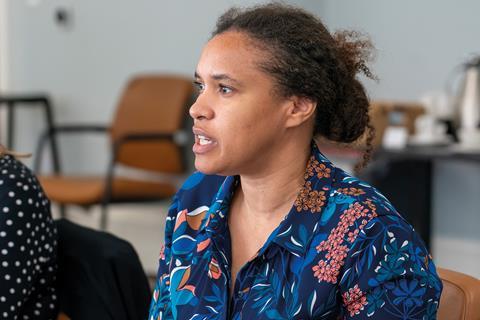
‘A lot of the time we think that money is everything,’ Whelan notes. ‘Actually, a lot of the time… that’s not the case. Some clients would like everything to pass to their spouse if they pass away because if they go into a care home, they want them to have really good care for as long as they’re in that home. They don’t want to protect it and try and put it into a trust. That’s their priority.’
‘I think that family dynamics are changing too,’ says Bracegirdle. She references the growing number of clients who are not a classic nuclear family. ‘I’m getting more clients who are, actually, very wealthy but, because they don’t have children they are leaving a lot of it to charity,’ she notes. In the case of single clients, she says, there may be a growing role for solicitors to be appointed as attorneys.
'There is a definite attitude among some clients that while "we’ve got all this money… we want our children to work, so we’re not going to leave them everything"'
Amy Wallhead, Culver Law
Wallhead adds there are clients ‘that have got children but don’t want them to have everything. I worked in Cambridge for 20 years, there’s quite a lot of wealth there,’ she says, but a definite attitude among some clients that while “we’ve got all this money… we want our children to work, so we’re not going to leave them everything”.’
On trusts, there are risks from a more commoditised offering. Public knowledge of the purpose and functioning of trusts is poor, several note, yet a trust is still seen as a desirable status symbol by some.
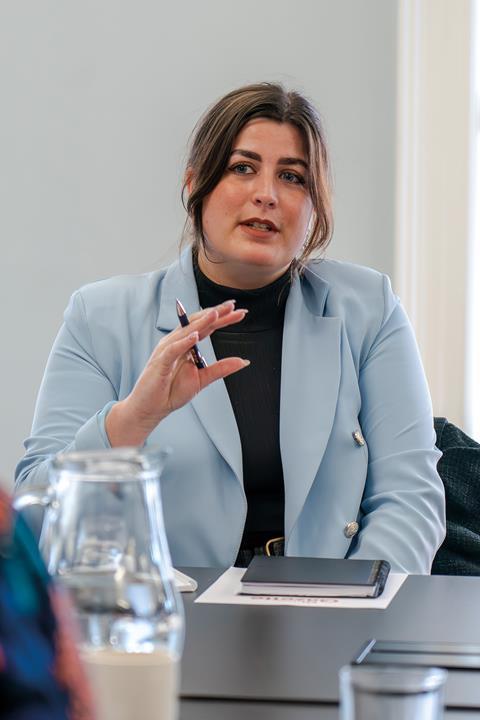
‘I think a lot of people have seen trusts, certainly from what I’ve heard, as the next PPI,’ Shakh says, ‘because there is a lot of mis-selling out there.’ He cites marketing from providers that targets people’s desire to pass local authority care means tests, boasting: ‘You don’t have to pay care home fees if you get one of these trusts.’ He warns: ‘Local authorities do challenge these things.’
Jani says: ‘Post-Covid, we’ve had quite a lot of clients who’ve come in and they’ve spent thousands upon thousands setting up trusts because, “It’s the way to do it. It’s the way to preserve your house.” Only to undo the arrangement.’
In the right context, she adds, ‘a trust can be a very powerful, useful vehicle. But, equally, sometimes it’s just not needed’. She continues: ‘Sometimes, the costs will outweigh any benefits… as solicitors, we do have that duty to review trusts that we’re working with,’ and to ask, ‘Is it still needed? Why is it still needed? Where are the costs? Where are the benefits?’.
Trusts, she suggests, are yet another area where public education needs to be improved. In its place, she notes, is mis-education. She is particularly critical of employers who invite unregulated people with an interest in marketing products to give presentations on retirement. Some of these focus on avoiding inheritance tax, using products that may be completely unsuitable for many clients.
Jani argues: ‘They should be vetting who they’re getting in to do presentations.’ Despite such frustrations, Louise Sargent, associate at Cripps’ London office, concludes there is an ‘interface with people that you don’t get in some other areas of law. And also, the opportunity to really get stuck in... look at the legislation which is forever changing. It’s interesting.’
- This roundtable was kindly sponsored by LEAP, a strategic partner of the Law Society
Photographs by Noah Da Costa























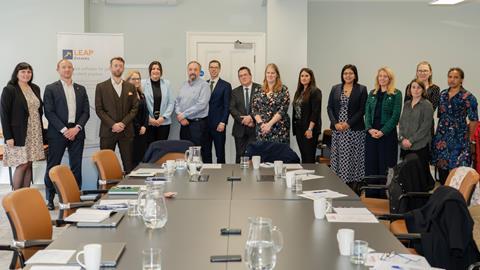













No comments yet